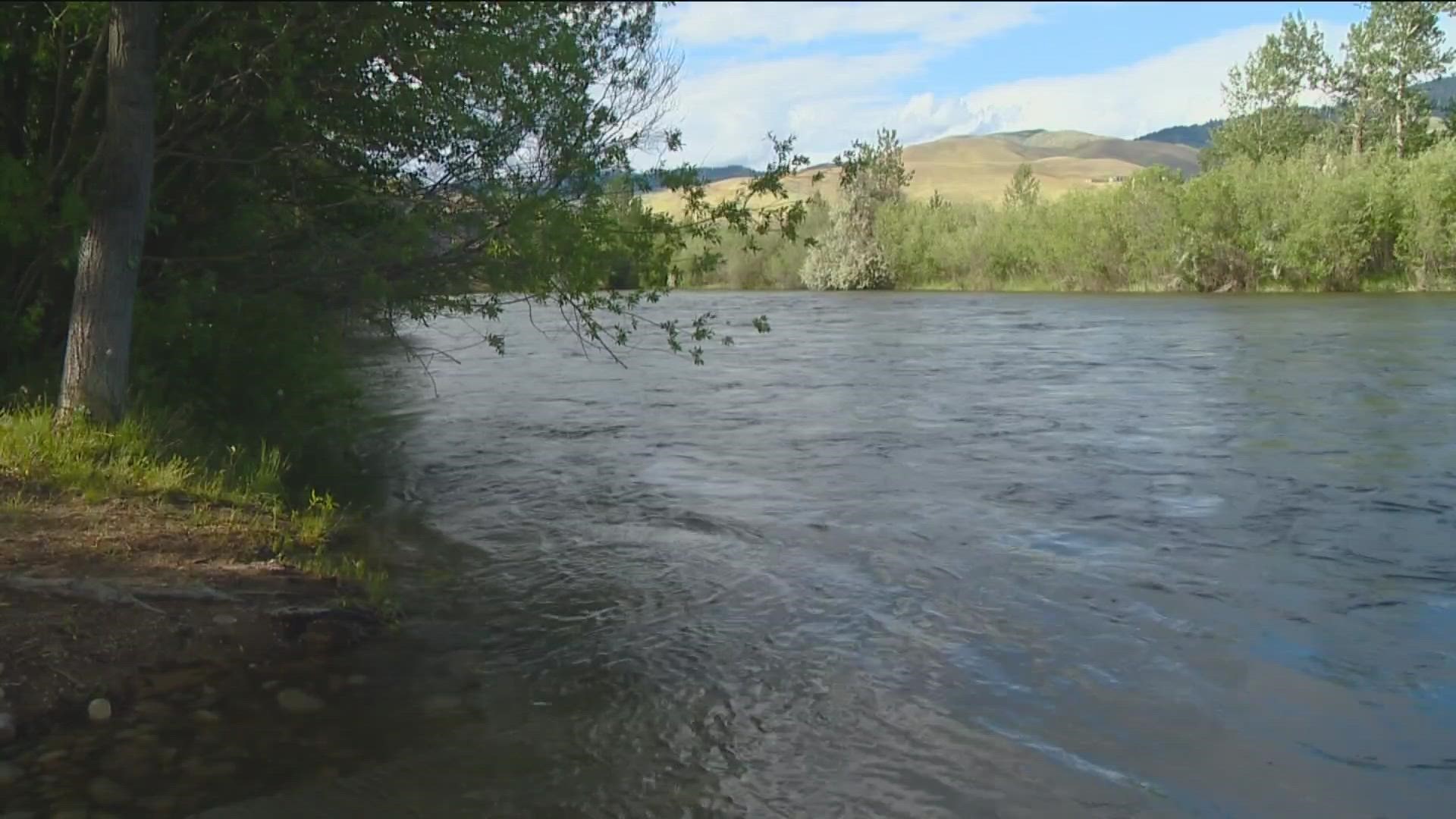IDAHO, USA — Attorney General Raul Labrador joined a lawsuit filed by Texas over the "Waters of the United States" (WOTUS) rule that determines which waters and rivers in the country fall under federal or state regulations.
"I am proud to join Texas in this fight against the Biden administration," Labrador said. "Another day, another attempt by the Biden administration to target Idaho's ability to control our natural resources. This unlawful federal encroachment threatens the sovereignty of Idaho, and we will not allow it."
An ongoing hot-button political, public and agriculture issue, water rights and how to regulate the use and care for it, has often been debated and laws have reflected that.
"This action will strengthen fundamental protections for waters that are sources of drinking water while supporting agriculture, local economies, and downstream communities," the Environmental Protection Agency (EPA) stated.
However, Idaho Farm Bureau Director of Governmental Affairs Braden Jensen said not everyone agrees about who should regulate that water.
"The question is what falls into federal jurisdiction and what falls into state jurisdiction," Jensen said.
Administration Associate Professor at Boise State University Dr. Monica Hubbard, who holds a Bachelor of Science, Masters of Science in Water Resources and a Ph.D. in Environmental Science said "our water system, hydraulic system, everything's connected, we only have a finite amount of water."
WOTUS defines what waters qualify for protection under the Clean Water Act. On Dec. 30, 2022, the EPA and U.S. Army Corps of Engineers announced the revised definition of WOTUS rule and it goes into effect Mar. 20, 2023.
Hubbard said it's called the Clean Water Act but is technically the Federal Pollution Control Act. She said the goal was to protect the US waterways to make them like swimmable and usable, drinkable, and so on. It was passed in 1972.
She said there are two tests that are used to determine which waters should be regulated, the Scalia test and the Kennedy test. The Scalia test posits that WOTUS are only those waterways that have a relatively permanent connection to a traditional navigable waterway, like the Boise River. In order for something to regulated under the Scalia test, a permanent waterway connected to it. The result of that is some waterways, like seasonal streams, that only run part of the year, or as a result from rain or snow melt or is not covered.
The Kennedy test adds ephemeral, or seasonal waterways if they are connected in some way, but not directly connected or running all the time. Hubbard said that 60% of our waterways in the United States are seasonal waterways.
The WOTUS rule, that uses the Kennedy test, replaces the Trump administrations Navigable Waters Protection Rule, that used the Scalia test, and went into effect in 2020.
The new rule, using the Kennedy test, had a much longer list of waters that were excluded from the Clean Water Act, including ephemeral waters.
According to the Idaho Farm Bureau, the new ruling expands the federal governments reach into private lands because it would regulate ephemeral drainages and low spots and ditches on farmlands and pastures.
"It impacts anybody with private property, and then wanting to make improvements or change anything or do any work upon that land," Jensen said. "Idahoans don't need more regulation.
Hubbard said that traditional agriculture activities are exempt under that rule.
However, many farmers, like Jensen claim the new ruling is vague.
"I think our farmers would have to worry about whether they would need to get a federal permit to do some of their common agricultural practices on their land," Jensen said.
Hubbard said that, under the new rule, there would be more bureaucratic hoops to jump through for farmers, private landowners and developers build.
The lawsuit joined by Labrador states that the definition of waters under the new rule intrudes on state sovereignty and the liberties of states and their citizens. It claims that agencies in the federal government have too much authority over the country's waters and are trying to expand their control over state's rights.
The Idaho Farm Bureau agrees; "This rulemaking brings us further away from the clarity and predictability achieved by the Navigable Waters Protection Rule. This is important for farmers and ranchers because the penalties for non-compliance are significant. A simple misjudgment by a farmer in determining whether a low spot is or isn’t subject to the regulation can trigger substantial civil fines as well as criminal penalties.
KTVB reached out to the EPA, but they will not comment on the litigation.
'The agencies,"[considered] the best available science and extensive public comment to establish a definition of 'waters of the United States' that supports public health, environmental protection, agricultural activity, and economic growth, the EPA said."
"The Final Rule also lacks clarity, leaving those wishing to identify the ambit of federal power over dry land or minor water features at the mercy of an expensive, vague, and arbitrary analysis, lest they face a staggering criminal or civil penalty," the lawsuit against the ruling stated.
Dr. Hubbard said, beyond, agriculture, urban areas in Idaho could also be affected.
"A lot of these cities would have effects, pollutants that would be coming down because they water is connected," Hubbard said. "In particular if mining operations occurred. Another really big concern would be sediment. Sediment is so difficult and costly to treat for drinking water systems. And that would be a great concern."
Watch more Local News:
See the latest news from around the Treasure Valley and the Gem State in our YouTube playlist:

